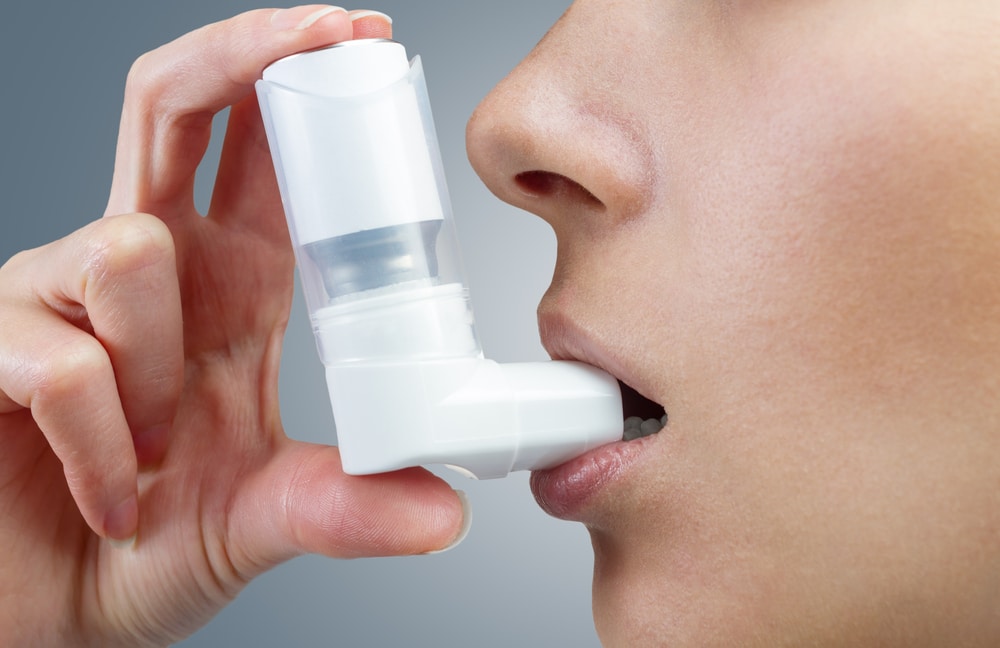
Not only can asthma make day-to-day activities a bit tougher, but taking care of your dental hygiene can require a little more work when you have asthma. As research has shown, asthma can contribute to dry mouth, which can quickly evolve into bad breath, cavities, and more.
As your local Billings, MT, family dentists, Bridge Creek Dental is here to share the research that connects asthma to increased dental problems, and what you can do to protect yourself.
Research Links Asthma To Several Oral Health Issues
There are a number of oral health problems that researchers have been connected to asthma, as well as potentially the use of an inhaler. Even without the regular use of a rescue inhaler, asthma can lead to the dental issues below.
Dry Mouth
Those individuals who struggle with asthma are far more likely to breathe through their mouths in an effort to get enough air. The problem with mouth-breathing is that the air isn’t moisturized like it is when you breathe through your nose. With drier air passing through your mouth more, it can lead to chronic dry mouth.
While dry mouth may just sound like an inconvenience, lowering your saliva production can actually have adverse long-term effects on your oral health, leading to greater bacteria growth and oral infections.
Mouth Sores
The use of an inhaler can irritate the back of your mouth. With repeated irritation, sores and lesions can form, making eating, swallowing, and even simply breathing uncomfortable. Also, with open sores, infection is a serious risk.
Gum Disease
Remember how we said that dry mouth could lead to other oral health issues? Well, one of those issues is gum disease. In a healthy mouth, the saliva production helps keep the bacteria population down. But for someone with asthma, their mouth is drier, and bacteria are able to keep growing, which can also lead to plaque buildup.
As plaque builds up on your teeth, it irritates your gums. With inflamed gums, bacteria can slip between the teeth and gums, causing your gums to recede and allow for infection to take place.
Tooth Decay
The drying effect of asthma—both hard breathing, inhaler use, and some asthma medications—can lead to an increase in tooth decay. Again, dry mouth is the main culprit, as the harmful bacteria are able to sit on your teeth longer with nothing to discourage its presence.
How To Protect Your Mouth While Managing Asthma
With the right preventative dental care, you can protect your oral health as you manage your asthma. Some of the top steps you can take are:
- Focus on drinking water – It’s not enough to simply hydrate, but instead, stick to drinking more water rather than other liquids. Also, if there is fluoride in the water, that is even better, as fluoride can help strengthen your teeth.
- Commit to oral hygiene routine – Nothing can beat a solid oral hygiene routine of brushing at least once in the morning and once at night, with once a day flossing. And, as someone with asthma, using antibacterial mouthwash isn’t a bad idea.
- Chew sugar-free gum – To help keep your salivary glands working, you can chew on gum, particularly sugar-free gum that contains xylitol. There has been research that points to xylitol helping prevent tooth decay.
- Determine asthma triggers – Prevention is key when it comes to protecting your oral health, and that includes learning your asthma triggers and avoiding them.
- Visit our dentists regularly – Coming in for your biannual dental cleanings can be a great way to keep track of your oral health. By knowing you have asthma, our dentists can provide you with tailored advice on how to keep your mouth healthy.
If you are ready for your biannual dental cleaning, then it is time to contact us and set up your appointment today.